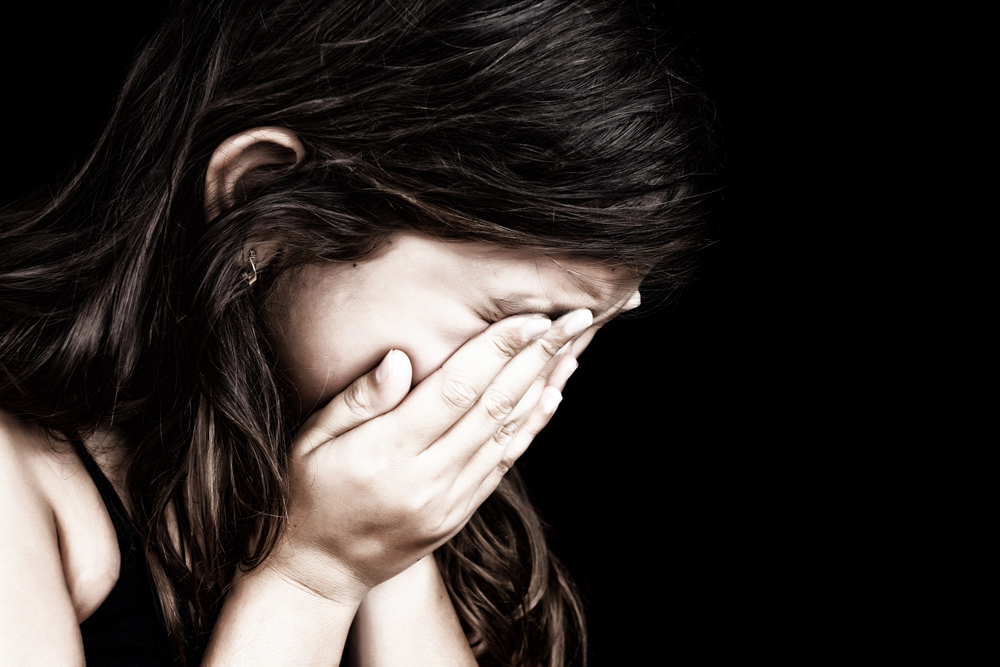A new study published in the Deutsches Ärzteblatt International (German International Medical Journal) links childhood trauma to depression and anxiety disorders in adulthood. The current work, led by Johanna Klinger-König from the University of Greifswald, additionally finds links between childhood trauma and cancer, myocardial infarction, diabetes, stroke, and chronic pulmonary disease in adulthood. While all the conditions examined in the current work were associated with childhood trauma, the links to depression and anxiety disorders were by far the strongest. The authors also note that these associations were strongest for young people in their sample. They write:
“Persons with childhood trauma were more likely to bear a diagnosis of all of the studied conditions: cancer, myocardial infarction, diabetes, stroke, chronic obstructive pulmonary disease, depression, and anxiety disorders. All of these associations were stronger in younger persons, regardless of the nature of childhood trauma.”
















It’s distressing and depressing and trauma REALLY ain’t no blessing. Fingers crack. Please don’t overwhelm my heart and brain with parasites. I live in tetra-packing factories and disaster areas where election strategist or chauffers might commit suicide on a yoga mat. Isolated old ladies find in their ovens worlds upon worlds upon worlds. It’s like 5 hairy fish fingers snatching drinks from a pink haired banana man, as two legged radioactive psycho-activated police frogs get lost in a waste land of American flags and cancelled lottery tickets. My kids, their cancelled birthdays, a hand full of food stamps. The NY subways are overrun by plagues of illuminous light-speed crabs which snatch wrist watches and hats, and in the shadows are warp-speed finger twitchers doing bad drug deals in the lime light of so many halogen heaters. My brain was smashed again and again as a child so – you know – just please don’t invade it with telescopes or atom smashers. Let’s arrest this police officer and pardon all illuminous high speed crabs. And please don’t drag your cats out in silly chicken outfits and ridiculous hats.
Report comment
A small modification of a shit life is still a shit life, even if it gives us a temporary feeling of relief. And everything is shit, so modifications will no longer cut it. I would say this is a plain fact in all of our lives. But all we do at the very best is try to modify the old which we’ve outpaced, and the structures of the old cannot help but keep collapsing, being by now a heap of idiosyncratic systems which together constitute an irreconcilable heap of dysfunction which is taking our brains and lives down with itself into an inferno of confusion and the confused efforts to try and stumble upon a solution to confusion, which of course is activity that generates further confusion. But modification is what we do when we are at our very best. Even small modifications in life seems like a distant, golden past. Now we are one big bovine power grab. We’re just a bunch of swine in suits focused on extracting from those that have less and preserving and protecting assets from those with increasing need of them. It’s a pig fight where the victory is always tilted in favour of the social class which shaped society in it’s image, namely the worst self-fattening pigs in politics and business. We should replace the American pledge of allegiance with “Oink Oink Oink”. And here in the UK we can, of course, sing “God Save Oink Oink”.
Report comment
Someone who is ill, depressed and/or anxious may look for reasons for their distress or condition. That alone could explain the results.
This is a study that shouldn’t have been done because it has too many limitations, which the researchers acknowledge. I don’t think we would accept this kind of poor quality research if we were evaluating a study of an antidepressant or antipsychotic.
Report comment
I’ve been through it to when I was little abused and had some realship with men they hit me and abused me my name is Violet Johnson
Report comment
Violet, I’m sorry you were subjected to abuse. I’m the mother of a child abuse survivor, who actually scared a school who had a child abuser on their school board, into closing down that school, after the medical abuse of my child was handed over.
But I agree, it’s absolutely disgusting that too many within both the psychological and psychiatric industries are systemic child abuse cover uppers.
https://www.indybay.org/newsitems/2019/01/23/18820633.php?fbclid=IwAR2-cgZPcEvbz7yFqMuUwneIuaqGleGiOzackY4N2sPeVXolwmEga5iKxdo
https://www.madinamerica.com/2016/04/heal-for-life/
Report comment
It’s a given that rates of depression and anxiety are higher in people who suffered child abuse. You don’t need a study to know that.
Report comment
I always wonder how the “brain dysfunction” advocates account for that.
Report comment
“Persons with childhood trauma were more likely to bear a diagnosis of all of the studied conditions: cancer, myocardial infarction, diabetes, stroke, chronic obstructive pulmonary disease, depression, and anxiety disorders. All of these associations were stronger in younger persons, regardless of the nature of childhood trauma.”
Jeez, thanks for the panic attack. I keep wondering if I should call 911 just in case everything I relate to about physical conditions is true and the people around me are wrong that I am paranoid. But that’s something I shouldn’t do, right? I don’t trust the hospitals or the ambulances anyways. Might as well just wait impatiently for the prince of darkness to collect me of his own volition. Right? I don’t truly have a say in my own healthcare, that’s just a platitude invented by human relations executives.
Report comment